All Stories
-
 Earth
EarthA moon-forming cataclysm could have also triggered Earth’s plate tectonics
Deeply buried remnants of a hypothetical planet that slammed into Earth 4.5 billion years ago might have set subduction into motion.
By Nikk Ogasa -
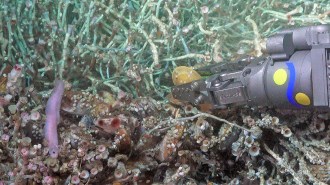 Animals
AnimalsA ‘fire wolf’ fish could expand what we know about one unusual deep-sea ecosystem
Unlike other known methane seeps, Jacó Scar is slightly warmer than the surrounding water and is a home for both cold-loving and heat-loving organisms.
-
 Genetics
GeneticsWhy experts recommend ditching racial labels in genetic studies
Racial labels don’t explain biological and genetic diversity but do cause stigma. They belong “in the dustbin of history,” a panel of experts says.
-
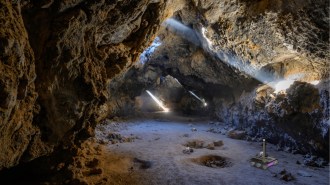 Tech
TechA trick inspired by Hansel and Gretel could help rovers explore other worlds
Taking a cue from a classic fairy tale, scientists propose a way for rovers to send back data from treacherous terrain.
-
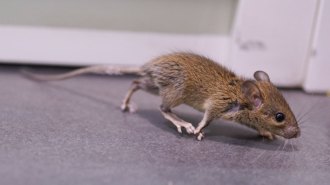 Neuroscience
NeuroscienceIn mice, anxiety isn’t all in the head. It can start in the heart
Scientists used optogenetics to raise the heartbeat of a mouse, making it anxious. The finding could offer a new angle for studying anxiety disorders.
-
 Particle Physics
Particle Physics‘Ghost Particle’ chronicles the neutrino’s discovery and what’s left to learn
Author James Riordon discusses his new book, why neutrinos are so important and how physicists are on the verge of making big discoveries about them.
By Erin Wayman -
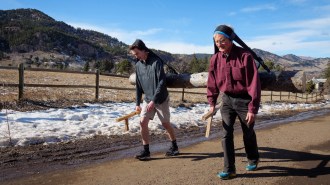 Anthropology
AnthropologyTwo scientists’ trek showed how people of Chaco Canyon may have hauled logs
By carrying a log with the aid of head straps called tumplines, the duo demoed how people may have hauled timbers to Chaco about 1,000 years ago.
-
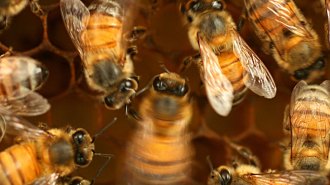 Life
LifeHoneybees waggle to communicate. But to do it well, they need dance lessons
Young honeybees can’t perfect waggling on their own after all. Without older sisters to practice with, youngsters fail to nail distances.
By Susan Milius -
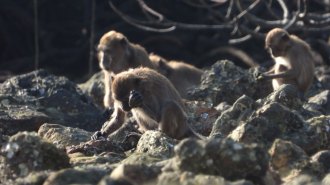 Archaeology
ArchaeologySome monkeys accidentally make stone flakes that resemble ancient hominid tools
A study of Thailand macaques raises questions about whether some Stone Age cutting tools were products of planning or chance.
By Bruce Bower -
 Health & Medicine
Health & MedicineMy mammogram revealed I have dense breasts. What does that mean?
Nearly half of U.S. women have dense breasts. A new FDA rule makes notification of breast density national. Here’s the scoop on why.
-

-

Good with tools? You may be a cockatoo
Editor in chief Nancy Shute talks about smart animals, from tool-using cockatoos to "self-aware" fish.
By Nancy Shute